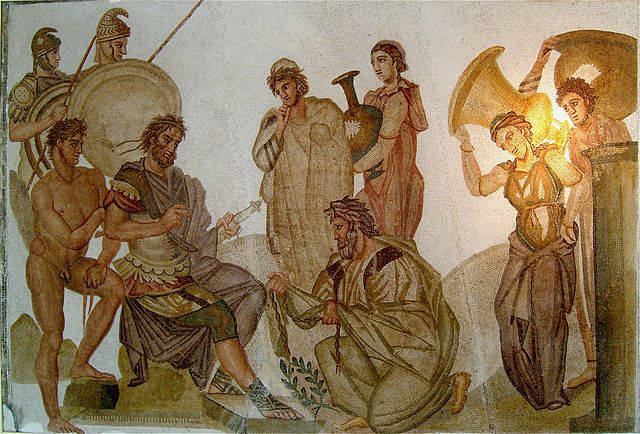Hear the story of the Cyclops in Homer’s Greek with an English translation at PantheonPoets.com. Starting today, we post the whole story from Book 9 of the Odysssey, one of the best and earliest travellers’ tales in European literature, in seven daily parts.
Why in the original? Because translations can’t convey the contribution that the sound of the ancient Greek language makes to the story, or the way in which Homer’s hexameter poetry sweeps the story along.
To do full justice to the performance of Homer’s Greek, a reader should have an absolute command of Homeric metre, which is irregular, complex and sometimes inconsistent, a native speaker’s pronunciation, the skills of a first-rate actor and a time machine to travel back to learn how the tonal aspects of the language – a bit like modern Chinese – actually worked, a question obscured by the passage of almost three millennia and subject to considerable dispute. We cannot claim all of these desirables, or indeed any of them in full, but hope that our careful research and best efforts will make the wonderful story worth listening to, and convey some of the narrative drive, drama and excitement that the Greek original will retain for ever.
Hear Homer’s original Greek and follow in Samuel Butler’s English translation here.





